VOICE OF THE LEOPARD
CARIBBEAN STUDIES SERIES
Anton L. Allahar and Shona N. Jackson
Series Editors
Voice of the Leopard
AFRICAN SECRET SOCIETIES AND CUBA
IVOR L. MILLER

www.upress.state.ms.us
Publication of this book is sponsored by InterAmericas/Society of Arts and Letters of the Americas, a program of The Reed Foundation.
The University Press of Mississippi is a member of the Association of American University Presses.
Copyright 2009 by Ivor L. Miller
All rights reserved
Manufactured in the United States of America
First printing 2009
Library of Congress Cataloging-in-Publication Data
Miller, Ivor.
Voice of the leopard : African secret societies and Cuba / Ivor L. Miller.
p. cm. (Carribean studies series)
Includes bibliographical references and index.
ISBN 978-1-934110-83-6 (cloth : alk. paper) 1. Sociedad Abaku (Cuba) 2. Secret societiesCuba. 3. BlacksCubaSocial life and customs. I. Title.
HS1355.S64C845 2008
369.097291dc22
2008033971
British Library Cataloging-in-Publication Data available
aiguism [Abaku] is not a masquerade, nor a fearsome society: it is an ethnic re-importation: it is an African country that plays, chants, and dances things that in Africa must have meaning. What does it mean? Like Hamlet, I said, That is the question.
SPANISH PENAL AUTHORITY (Salillas 1901: 342)
History has two parts: that which happens and that which is written.
CUBAN ABAKU LEADER, 2001
To all who struggle to defend historical memory of family and community
CONTENTS
ACKNOWLEDGMENTS
For their help with my research in Cuba, I gratefully thank the following individuals: Natalia Bolvar, Luisa Campuzano (Casa de las Amricas), Luis Carbonel, Osvaldo Crdenas-Villamil (Ef Kunanbre), Niudys Cruz-Zamora, Idania Daz-Gonzlez, Pedro-Michel Daz, Jorge and Norma Enriquez, Jos-Antonio Fernndez, Toms Fernndez-Robaina (Biblioteca Nacional Jos Mart), Radams Giro (musicologist), Gregorio El Goyo Hernndez (musician), Lzaro Herrera (Septeto Nacional de Ignacio Pieiro), Mercedes Herrera Sorzano (Museo del Ferrocarril de Cuba), Mirta Gonzlez-Fernndez, Eusebio Leal (Historian of the City of Havana), Zoila Lapique Becall (historian), Dra. Mara-Tersa Linres, Jorge Macle-Cruz (Archivo Nacional de Cuba), Ibraim Malleri, Rogelio Martnez-Fur (Conjunto Folklrico Nacional), Maria-Elena Mendiola, Frank Oropesa (Septeto Nacional), Pablo Pacheco-Lpez (ICAIC), Carmen Pasqual (Museo de Guanabacoa), Guillermo Pasos-Gonzlez, Francisco Pealver-Snchez El Chino (Awana Mokko Ef), Alfredo Prieto (Centro Martin Luther King, Jr.), Rafael Queneditt, Tato Quiones, Jorge Reyes (bassist), Roberto Sanchez-Ferrer (composer), Ernesto Soto-Rodrguez El Sambo (Itia Mukand), Pedro-Alberto Suarez Gonzles Pedrito el yuma (Moru Erib Engomo de Betong Narko Ef), Margarita Ugarte (Conjunto Folkrico Nacional), Oscar Valds, Jr. (Irakere), Sergio Vitier (composer), and Francisco Minini Zamora (Grupo AfroCuba).
My work in Nigeria was made possible by the gracious help of the following: Sunday Adaka (curator, National Museum, Calabar), Nath Mayo Adediran (director of museums, National Commission for Museums and Monuments), Engineer Bassey Efiong Bassey, Etubom Bassey Ekpo Bassey (Efe kp Eyo Ema, Ekoretonko), Donald Duke (former governor, Cross River State), Edidem Atakpor-Obong (Dr.) E.B.A. Ekanem (Nsomm the 3rd and Paramount Ruler of Uruan Inyang Atakpo), H.R.M. Obong (Dr.) Essien U. Ekidem (Ntisong Ibibio, Ntison III, Obom Ibibio), Liza A. Gadsby and Peter D. Jenkins Jr. (Pandrillus). H.R.M. Edidem (Prof.) Nta Elijah Henshaw IV (the late Obong of Calabar), Prince Etim Ika (Efut Ifako), H.R.M. Ndidem (Dr.) Thomas Ika Ika Oqua III (Ndidem of the Qua Nation), Jill Salmons, Professor Eno-Abasi Urua (UniUyo), and Okon E. Uya (UniCal).
For their help in Cameroon, I extend my sincere gratitude to the following: J.B.C. Foe-Atangana (Minister Plenipotentiary, Consulate of the republic of Cameroon), Dr. Enoh Richard Agbor (University of Buea), Chief Esoh Itoh (Paramount Ruler of the Balondo people of Cameroon), Fongot Kinni (University of Buea), Roland Ndip (University of Buea), Victor Julius Ngoh (University of Buea), Edmond Nofuru, and Francis Nyamnjoh (CODESRIA).
My research in Spain was aided by Juan Carrete (Centro Conde/Duque), Octavio Di Leo, and Maya Garca de Vinuesa.
I thank the following for their help and support during my work in the United States: John Aubry (Newberry Library), Jos-Juan Arrom, Antonio Bentez-Rojo, Kenneth Bilby, George Brandon, Amanda Carlson, David Cantrell, Alvaro Carraro-Delgado, Bruce Connell, Jill Cutler, C. Daniel Dawson, Ogduardo Romn Daz (Ekueri Tong papa Umoni), Cristbal Daz-Ayala, Alejandro de la Fuente, David Easterbrook (Herskovits Library), Joseph Edem, Orok Edem, David Eltis, Luis El Peln Fernndez-Pealber (Amiabn Brand Masngo), Raul A. Fernndez, Robert Glover, Michael Gomez, John Gray, ngel Guerrero-Vecino (Itia Mukand Ef), James de Jongh (IRADAC), Joseph Inikori, Callixtus E. Ita, Reynold Kerr, Chester King, Christopher Krantz, Diana Lachatenere (the Schomburg Center), Jayne Lovett, Victor Manfredi, Nancy Mikelsons, Craig Miller, Jean Miller, Lynn Miller, Robin Moore, Patricia Ogedengbe (Herskovits Library), Colin Palmer (the Schomburg Center), Julio Tito RafaelDaz (Munandib Ef), Enid Schildkrout, Alfonso Serrano (Grand Lodge of New York, F & AM), Ilan Stavans, Ned Sublette, Helen Hornbeck Tanner (Newberry Library), Robert Farris Thompson, Asuquo Ukpong (Ekoretonko), and Grete Viddal. Thanks to my copyeditor, Lisa DiDonato Brousseau, and to Craig Gill, Anne Stascavage, and Todd Lape at the University Press of Mississippi for their support and contributions to this project.
Finally, I extend my thanks to the many Abaku members who wish to remain anonymous.
These following libraries and their staff were instrumental to research: Amherst College Library Special Collections, Amherst, MA; Archivo Nacional de Cuba, La Habana; Biblioteca Nacional Jos Mart, Cuba; Boston University African Studies Library; Center for Black Music Research. Columbia College, Chicago (Suzanne Flandreau); The Center for Cuban Studies in New York City; DePaul University, The Richardson Library (Margaret Powers); Daz-Ayala Cuban and Latin American Popular Music Collection, Florida International University; Harvard University Libraries, Cambridge, MA; Hemeroteca Municipal, Ayuntamiento de Madrid, Espaa; Melville J. Herskovits Library of African Studies, Northwestern University Library; Museo de la Msica, La Habana; Pritzker Legal Research Center, Northwestern University School of Law (Jim McMasters); and The Schomburg Center for Research in Black Culture of the New York City Public Library.
Research for this book was supported by the following grants and institutions: the National Endowment for the Humanities, Samuel I. Newhouse, and the Schomburg Center for Research in Black Cultures Scholars-in-Residence Program (20072008; any views, findings, conclusions, or recommendations expressed in this publication do not necessarily represent those of the National Endowment for the Humanities); Calabar  (20072008), an association of kp lodges from fik, Efut, Qua, Okoyong, and Umon; Council for the Development of Social Science Research in Africa (20062007), Transnational Working Group on Africa and Its Diaspora; Rockefeller Resident Fellow (20052006), Center for Black Music Research, Columbia College, Chicago; Summer Research in West Africa (2004), West African Research Association, African Studies Center, Boston University; Cultural Grant (2003), City of Chicago Department of Cultural Affairs; Visiting Faculty (20022004), DePaul University, Chicago, Center for the History and Culture of Black Diaspora; The Copeland Fellowship (20012002), Amherst College; Rockefeller Resident Fellow (20002001), The City College of New York; The Institute for Research in the African Diaspora in the Caribbean and the Americas, a Rockefeller Foundation Humanities Fellowship Program; Cuba Exchange Program Fellowship for Study in Cuba (2000). Johns Hopkins University; Scholar-in-Residence (19992000), Schomburg Center for Research in Black Culture, funded by the National Endowment for the Humanities; and an H. H. Rice Foreign Residence Fellowship (1990), Yale University, for twelve months of residency in Cuba.
(20072008), an association of kp lodges from fik, Efut, Qua, Okoyong, and Umon; Council for the Development of Social Science Research in Africa (20062007), Transnational Working Group on Africa and Its Diaspora; Rockefeller Resident Fellow (20052006), Center for Black Music Research, Columbia College, Chicago; Summer Research in West Africa (2004), West African Research Association, African Studies Center, Boston University; Cultural Grant (2003), City of Chicago Department of Cultural Affairs; Visiting Faculty (20022004), DePaul University, Chicago, Center for the History and Culture of Black Diaspora; The Copeland Fellowship (20012002), Amherst College; Rockefeller Resident Fellow (20002001), The City College of New York; The Institute for Research in the African Diaspora in the Caribbean and the Americas, a Rockefeller Foundation Humanities Fellowship Program; Cuba Exchange Program Fellowship for Study in Cuba (2000). Johns Hopkins University; Scholar-in-Residence (19992000), Schomburg Center for Research in Black Culture, funded by the National Endowment for the Humanities; and an H. H. Rice Foreign Residence Fellowship (1990), Yale University, for twelve months of residency in Cuba.
Next page

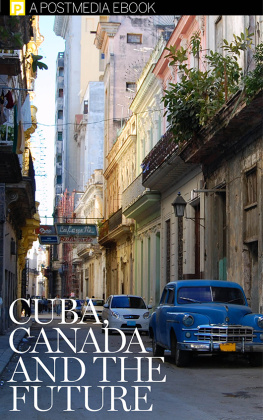
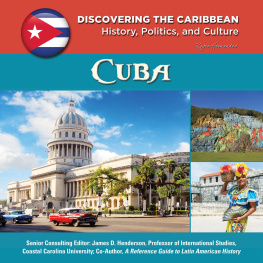
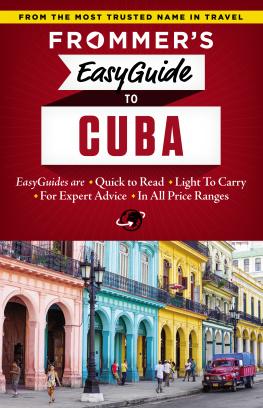
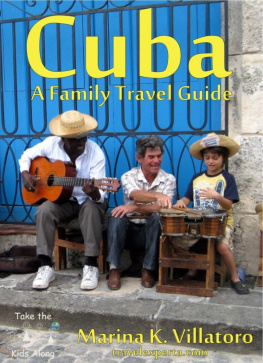
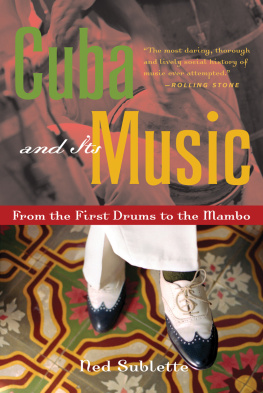
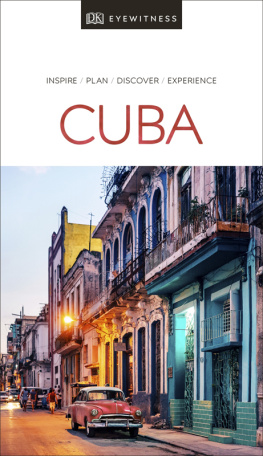
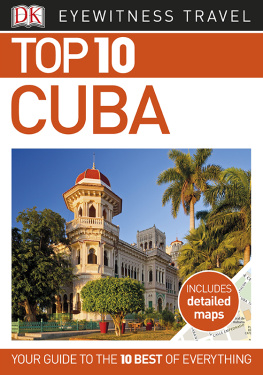
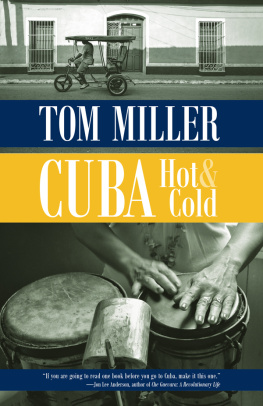
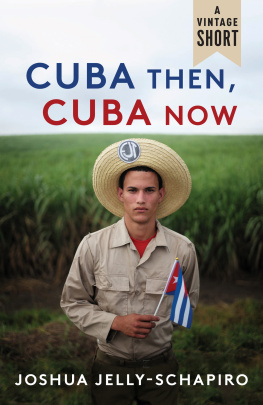

 (20072008), an association of kp lodges from fik, Efut, Qua, Okoyong, and Umon; Council for the Development of Social Science Research in Africa (20062007), Transnational Working Group on Africa and Its Diaspora; Rockefeller Resident Fellow (20052006), Center for Black Music Research, Columbia College, Chicago; Summer Research in West Africa (2004), West African Research Association, African Studies Center, Boston University; Cultural Grant (2003), City of Chicago Department of Cultural Affairs; Visiting Faculty (20022004), DePaul University, Chicago, Center for the History and Culture of Black Diaspora; The Copeland Fellowship (20012002), Amherst College; Rockefeller Resident Fellow (20002001), The City College of New York; The Institute for Research in the African Diaspora in the Caribbean and the Americas, a Rockefeller Foundation Humanities Fellowship Program; Cuba Exchange Program Fellowship for Study in Cuba (2000). Johns Hopkins University; Scholar-in-Residence (19992000), Schomburg Center for Research in Black Culture, funded by the National Endowment for the Humanities; and an H. H. Rice Foreign Residence Fellowship (1990), Yale University, for twelve months of residency in Cuba.
(20072008), an association of kp lodges from fik, Efut, Qua, Okoyong, and Umon; Council for the Development of Social Science Research in Africa (20062007), Transnational Working Group on Africa and Its Diaspora; Rockefeller Resident Fellow (20052006), Center for Black Music Research, Columbia College, Chicago; Summer Research in West Africa (2004), West African Research Association, African Studies Center, Boston University; Cultural Grant (2003), City of Chicago Department of Cultural Affairs; Visiting Faculty (20022004), DePaul University, Chicago, Center for the History and Culture of Black Diaspora; The Copeland Fellowship (20012002), Amherst College; Rockefeller Resident Fellow (20002001), The City College of New York; The Institute for Research in the African Diaspora in the Caribbean and the Americas, a Rockefeller Foundation Humanities Fellowship Program; Cuba Exchange Program Fellowship for Study in Cuba (2000). Johns Hopkins University; Scholar-in-Residence (19992000), Schomburg Center for Research in Black Culture, funded by the National Endowment for the Humanities; and an H. H. Rice Foreign Residence Fellowship (1990), Yale University, for twelve months of residency in Cuba.